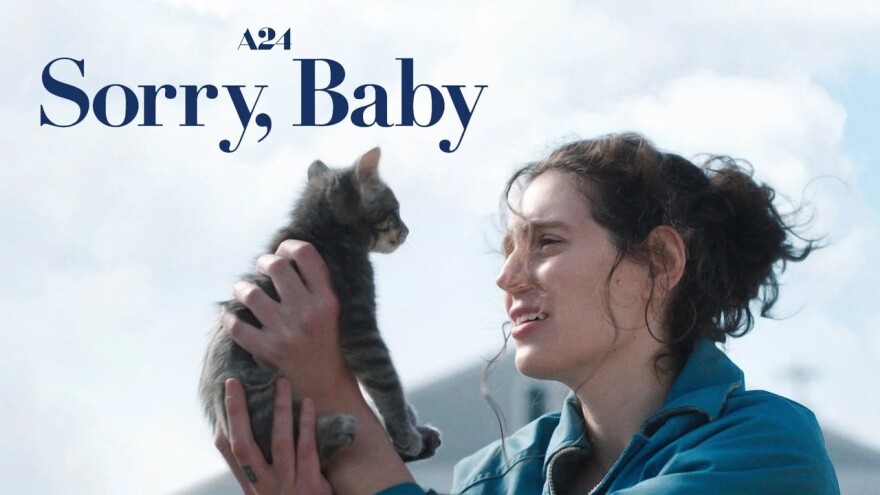A bad thing happened to Agnes. This trauma and how, or whether, a smart, quirky young woman moves on is the subject of “Sorry, Baby.”
Hearing that, some people might run in the opposite direction. But “Sorry, Baby” is a don't-miss movie to run towards.
Despite its weighty theme, the film is bracing, tender and often laugh‑out‑loud funny. Getting the tone right in as complex a story as this is no small feat — and the film nails it, every time.
Screened at Sundance in 2025 and winner of the Waldo Salt Screenwriting Award: U.S. Dramatic, ”Sorry, Baby” is the first film by Eva Victor, who wrote, directed and stars in it. The movie was the subject of an intense bidding war, eventually won by A24, and it’s easy to see why.
The movie opens with Agnes, played by Victor, awaiting a visit from her best friend, Lydie (beautifully played by Naomi Ackie). Agnes is a young, tenured professor teaching at the same university where she and Lydie were graduate students in writing. While Lydie has moved to New York, settled with a partner and has a child on the way, Agnes still lives in the same little house on top of a hill that she and Lydie shared years before. Their close friendship is at the core of the movie, and it’s a joy to hang out with them, share their jokes, and learn their history.
The film asks: What does “moving on” really mean? If you stay physically in the same place, how does that impact healing? Early on, Lydie asks Agnes tentatively, “Are you OK?” and quickly observes,"It's a lot to still be here.” Agnes makes a quick retort, “It’s a lot to be anywhere.”
And so, the movie unfolds, moving between four non-linear sections over a three-year period: The year with the baby; the year with the bad thing, the year with the questions; the year with the sandwich. The “bad thing,” never named, never shown, swirls through Agnes’ life, even as she succeeds professionally and connects romantically. Part of the movie’s genius is its resistance to a simple, straight line of trauma-to-recovery, and its insistence, much like Agnes’ own, that she is not simply a victim.
Humor helps. And this film is funny. Very funny. Victor began her career as a comedy writer, and it shows in the film’s dry wit, absurd moments, and sharp dialogue.
Each of the characters is nuanced and the performances are uniformly excellent. “Sorry, Baby” is visually arresting, with saturated colors, lighting that aligns perfectly with a scene’s mood, and clean visual framing. Music perfectly underscores the film’s emotional currents.
The film also stars Louis Cancelmi, Kelly McCormack, Lucas Hedges, and John Carroll Lynch. “Sorry, Baby” is rated R for language and offscreen sexual violence. It runs 1 hour and 43 tightly-edited minutes and is being shown at the Park City Film Series at the Jim Santy auditorium Sept. 26th - 28th.
So, should you see it? Heck, yeah.


